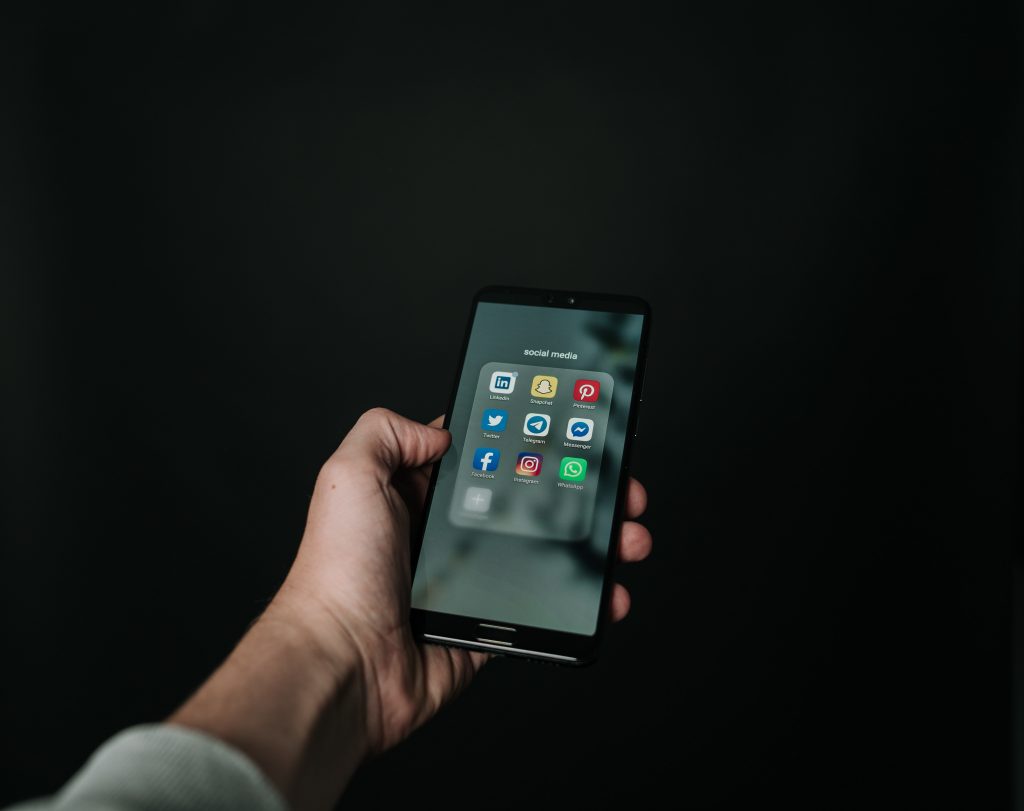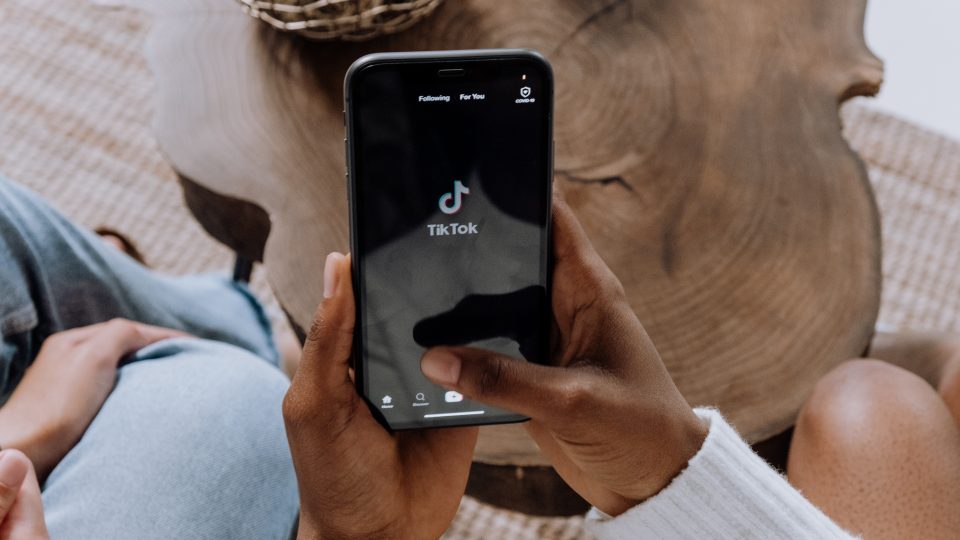Social Media for Music | Which Is the Best Platform for Independent Artists?
Promoting your music online is essential to gaining visibility and growing your fanbase. But, which of the numerous social media platforms should you put your energy into?
Social media has become the most powerful tool for self-promotion and fan engagement. With the ability to skyrocket your music’s visibility and increase monthly streams, choosing the right social media platform is crucial.
Gone are the days of relying solely on record labels. Now, armed with a smartphone and creativity, artists can take their music directly to the masses. Social media platforms offer an unrivalled opportunity to build a personal brand, connect with fans worldwide, and turn music passion into a sustainable career.
In this article, we’ll explore the power of social media for music promotion. We’ll delve into why it’s a game-changer for independent musicians, highlight top platforms, and equip you with the tools to craft an effective social media strategy. Whether you’re a singer-songwriter, a band, or an instrumental virtuoso, this guide will empower you.
Understanding the potential of social media, and the importance of it in today’s industry, is crucial. Platforms like Facebook, Instagram, Twitter, and YouTube provide the ideal foundation to showcase your unique identity, share updates, and engage with fans. These channels foster authentic connections and cultivate a dedicated community around your music.
Unleash your music’s potential as we explore the best social media platforms for independent musicians. Grow your audience and boost your monthly streaming stats, all without spending a single penny!
Table of Contents
The Power of Social Media for Music Promotion
In the ever-evolving landscape of the music industry, social media has become an indispensable tool for musicians. It offers an incredible opportunity to connect directly with fans, share your music, and build a loyal following.
For the majority of independent artists, funding can be a prominent stumbling block. Attempting to do everything yourself – write, record, manage events, produce merch – whilst often working a full-time job can mean that your budget is pretty restrictive. As a result, there’s not much money left over for marketing and promotion. Fortunately, social media platforms, for the most part, are completely free to use.
Here’s a closer look at why utilising social media for music promotion is such a game changer:
Building Your Online Presence
Increasing discoverability and building a strong online presence are crucial steps that both new and established artists can take. Social media platforms allow you to establish a brand, share updates and tease new releases, as well as engage directly with your audience. There is a variety of content types you can upload to suit your style and preferences.
When creating your online presence, both consistency and authenticity are key. Always be yourself, as people are quick to detect fakery. Plus, it’s tiring putting on a persona or facade all the time, which means you’re less likely to be consistent.
Posting consistently will keep you in the minds of your audience, and the social media algorithm gods will look fondly down upon you.
Reaching a Global Audience
With social media, you can transcend geographical boundaries and connect with fans worldwide. Platforms like Spotify and SoundCloud enable you to distribute your music to a vast audience, while Instagram and TikTok provide visual avenues to showcase your creativity.
Utilise hashtags, collaborations, and viral challenges to expand your reach and attract new listeners.
Direct Fan Engagement
As previously mentioned, social media platforms offer a unique opportunity to directly engage with your fans. Responding to comments, hosting live Q&A sessions, or running fan contests can help foster a sense of community and strengthen your relationship with supporters.
Not only is having a community around you fantastic for motivation and your mental well-being, but engaged fans are more likely to financially support you by buying your music or tickets to shows. This leads beautifully to the final point…
Sell Merch & Tickets Seamlessly
Another great reason to use social media for music promotion is the ability to sell to fans on-platform. Reducing the steps someone has to take in order to complete a transaction makes them much more likely to, well, complete a transaction.
If you’re going on tour soon, you can create social media content that features direct links to the ticket sale website. Try this, and tell us it doesn’t boost your ticket sales.
Choosing the Right Platform for Your Music
Now that we’ve gone over the importance of social media for music makers, it’s time to look into choosing the right platform for you. There are a lot of choices out there, so understanding your own music and audience is imperative before sinking all your efforts into a platform.

There’s no point in creating great content on a regular basis if your audience simply doesn’t hang out on that platform. This part is all about working smart, rather than working hard.
We’ve broken down some of the major platforms, and how they might appeal to certain artists.
Instagram: Visual Storytelling
Instagram’s visual nature makes it ideal for showcasing your music through captivating photos, behind-the-scenes content, and short videos. Leverage Instagram Stories, IGTV, and Reels to engage your audience and drive traffic to your music streaming platforms.
- Instagram Stories: Connect with your fans on a daily basis by sharing engaging, time-sensitive content. Showcase snippets of your music, share behind-the-scenes moments and interact with your audience through features like polls, questions, and music stickers.
- Reels: Capitalise on the popularity of short-form video content with Instagram Reels. Create catchy music snippets, showcase your creativity through choreographed routines or humorous skits, and take advantage of trending challenges to increase your visibility. If these types of content don’t sound like a good fit for you, you can always share educational or inspirational video content, or simply treat Reels as a video diary.
YouTube: The Power of Video
YouTube remains a go-to platform for music discovery. Create music videos, lyric videos, vlogs, and live performances to captivate your audience and attract new fans.
- Music Videos: Produce high-quality music videos that visually complement your songs. Compelling visuals, storytelling elements, and creative concepts will help to leave a lasting impression on your viewers. You can also use the descriptions of videos to direct people to playlists you feature on either on YouTube or elsewhere.
- Lyric Videos: Enhance your listeners’ connection to your music by creating lyric videos. Incorporate visually appealing typography, animations, and imagery that bring your lyrics to life and engage your audience on a deeper level.
- Vlogs: Take your fans behind the scenes with vlogs. Share glimpses of your daily life as a musician, document your studio sessions, or give them an inside look at your creative process. Vlogs add a personal touch and help fans feel more connected to you.
- Live Performances: Stream or upload live performances to YouTube. Whether it’s a concert, acoustic set, or intimate session, showcasing your live talent allows fans to experience your music in a dynamic and authentic way.
TikTok: Fuel Your Music’s Virality
TikTok’s explosive growth has made it a goldmine for music promotion. Its algorithm-driven For You Page offers the potential for songs to go viral overnight. Participate in challenges, create catchy snippets of your music, and leverage the platform’s vast user base to catapult your music into the spotlight.
- Participate in Challenges: TikTok is known for its viral challenges. Engage with the TikTok community by participating in relevant music-related challenges. Create unique and entertaining videos that showcase your music and encourage others to join in.
- Catchy Music Snippets: Create short, attention-grabbing snippets of your music that resonate with TikTok users. Hook them in the first few seconds and make it easy for users to use your song in their own videos, increasing its potential for virality.
- Collaborate with Influencers: Reach out to TikTok influencers who align with your music style and target audience. Collaborate on content creation or have them feature your music in their videos. Influencer partnerships can amplify your reach and introduce your music to new fans.
Twitter: Real-Time Engagement
Twitter’s fast-paced, real-time nature makes it an excellent platform for connecting with fans, sharing updates, and engaging in conversations within the music community.
- Share Updates: Use Twitter to keep your fans informed about upcoming releases, gigs, or collaborations. Utilise concise, attention-grabbing tweets to create anticipation and excitement around your music.
- Engage in Conversations: Participate in relevant music discussions, hashtag conversations, and industry chats on Twitter. Engaging with other musicians, fans, and industry professionals can expand your network and help you build meaningful connections.
- Live-Tweet Events: If you’re performing at a gig or attending music events, live-tweeting can generate buzz and give your fans a sense of being there with you. Share highlights, behind-the-scenes moments, and interact with fans who couldn’t attend the event
Crafting an Effective Social Media Strategy

When taking to social media for music promotion, it’s wise to approach things strategically. So you target your efforts appropriately and utilise platforms effectively, consider these tips:
Define Your Target Audience
Understanding your target audience is vital for creating content that resonates with them and drives engagement. Start by defining the demographics, interests, and music preferences of your ideal listeners. This information will help you tailor your content and choose the most relevant platforms for reaching your target audience.
Once you have a clear understanding of your target audience, create content that speaks directly to them. For example, if your music appeals to a younger demographic, platforms like TikTok and Instagram might be more effective. If your music targets a niche genre, explore forums, Facebook groups, or dedicated music platforms where your audience is likely to congregate. By focusing your efforts on platforms and content that align with your target audience, you can maximize your engagement and conversion rates.
Consistency & Quality
Consistency is key to building a strong presence on social media. Develop a content calendar and establish a regular posting schedule. Consistent posting helps to maintain your audience’s interest in your music. Aim for a balance between sharing music-related content, behind-the-scenes glimpses, personal updates, and engaging with your fans.
While consistency is crucial, it should never come at the expense of quality. Strive to create high-quality content that reflects your brand and showcases your music in the best light. Invest time in developing visually appealing graphics, compelling videos, and well-crafted captions. Professionalism and attention to detail will help you stand out in the very overcrowded space that is social media.
Engage, Engage, Engage
Engaging with your audience is essential. Respond to comments, direct messages, and mentions promptly. Show genuine interest in your fans’ thoughts and feedback. By building a reputation for being responsive and approachable, you’ll foster a loyal fan base that eagerly supports your music.
Collaboration & Cross-Promotion
Collaborating with others in the music industry can significantly expand your reach and introduce your music to new audiences. Seek out opportunities to collaborate with fellow musicians, producers, or content creators. For example, you could feature another artist on a song, participate in a joint live performance, or create a collaborative music video.
Cross-promotion is another effective strategy for increasing your online visibility. Reach out to musicians in a similar genre or with overlapping fan bases and propose mutually beneficial cross-promotion initiatives. This could involve featuring each other’s music on your social media platforms, co-hosting a live stream, or recommending each other’s tracks to your respective fan bases. Cross-promotion allows you to tap into existing fan communities and expose your music to new listeners who are likely to appreciate your sound.
Remember, collaboration and cross-promotion should be based on genuine connections and shared interests. Look for opportunities to support and uplift your peers while leveraging their platforms to expand your own reach. The music industry thrives on collaboration, and by working together, you can create a ripple effect that benefits everyone involved.
In Summary
If you’re looking to further your career, then there’s no better tool than social media. Used effectively, social media platforms can act as free marketing and music promotion methods. Independent artists can expand their audience, connect with fans, and share their talents, all without needing a big budget.
Exciting video content, genuine conversations, and insights into your life as an artist are all things that will help to draw in new fans. Consider your music and ideal audience, and make informed decisions about which social media platform is right for you.
Successful social media strategies can result in increased ticket sales for live shows, more purchases of your music or merch, and increased monthly streams on platforms like Spotify or Apple Music. With so many opportunities for creativity and experimentation, there’s no reason why you can’t perfect your use of social media for music promotion.
With this guidance and these top tips, what are you waiting for?
Social media can help boost your monthly streams, but what then? Sell shares of your music streaming royalties for instant revenue on Fractis. Learn more right here!
